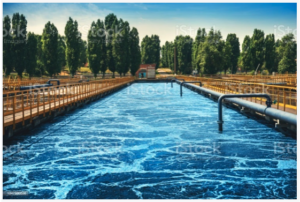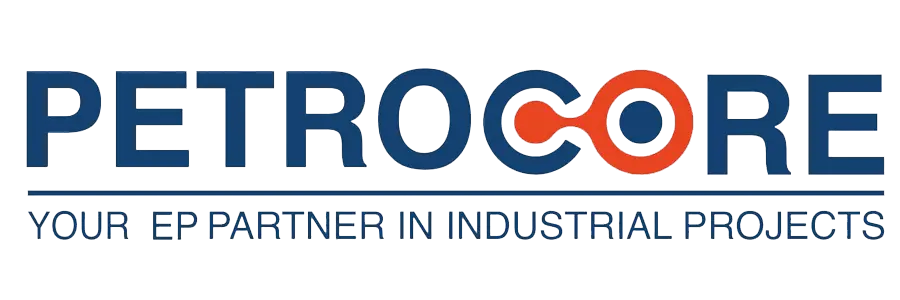Welcome to our Industrial Wastewater Treatment Technologies, where the imperative of environmental stewardship converges with state-of-the-art solutions for wastewater purification and management. At PetroCore Group, we are excited to showcase our steadfast partnership with a distinguished German manufacturer and technology provider. This collaboration empowers us to deliver cutting-edge technologies that are at the vanguard of industrial wastewater treatment. With our shared dedication to sustainable practices, we offer a diverse array of advanced solutions that address the unique challenges posed by industrial wastewater across sectors. Explore our innovative technology employing chemical-physical, biological, thermal inactivation, membrane filtration, and advanced oxidation processes in various application :
1. Industrial applications:
•COD degradation
•Disinfection
•Process water pre-treatment
•Reuse
•Reducing wastewater fees and fresh water consumption
•Prevention of bio-films
2. Biological plants:
• Disinfection
• Degradation of anthropogenic trace substances (hormones, analgesics, X-ray contrast media, plastic additives, bactericides, corrosions inhibitors, etc.)
• Improved treatment performance and capacity increase without high reconstruction expenditures
• Reuse of discharge
3. Oil & Gas-Industry:
• Spent Caustic-, Phenol and Mercaptans treatment
• Sour Water-, Phenol and Mercaptans treatment
• COD degradation
• Diversionary wastewater treatment
Wastewater treatment is a critical process that involves the removal of pollutants and contaminants from wastewater generated by various industrial processes. The specific applications and types of industrial wastewater treatment can vary widely based on the nature of the pollutants, the industry, and the regulatory requirements. Here are some common applications and types of industrial wastewater treatment:
Applications of Industrial Wastewater Treatment:
- Municipal Sewer Discharge: Many industries discharge their treated wastewater into municipal sewer systems. Before discharge, the wastewater undergoes treatment to meet local sewage treatment plant requirements.
- Environmental Compliance: Industries must often treat their wastewater to comply with local, national, and international environmental regulations, ensuring that discharged water meets specified quality standards.
- Water Reuse and Recycling: Some industries treat wastewater for reuse within their processes, reducing their water consumption and environmental impact.
- Zero Liquid Discharge (ZLD): In ZLD systems, industries aim to recover as much water as possible from their wastewater, leaving little to no liquid waste for disposal.
- Groundwater Recharge: In regions with water scarcity, treated wastewater can be recharged into groundwater aquifers to replenish water resources.
- Sludge Management: Treatment processes often produce sludge, which must be further treated and disposed of or used beneficially (e.g., as fertilizer or in biogas production).
- Heavy Metal Removal: Industries that produce wastewater containing heavy metals, such as electroplating or mining, require specialized treatment to remove or recover these metals.
Types of Industrial Wastewater Treatment:
- Physical Treatment:
- Screening and Straining: Removes large debris and solids.
- Sedimentation: Allows solids to settle at the bottom of tanks.
- Filtration: Passes wastewater through a filter medium to remove suspended solids.
- Chemical Treatment:
-
- Coagulation and Flocculation: Adds chemicals to encourage particles to clump together for easier removal.
- Chemical Precipitation: Forms insoluble compounds with dissolved contaminants, which can then be removed.
- Biological Treatment:
-
- Activated Sludge Process: Uses microorganisms to break down organic matter.
- Biological Filters: Passes wastewater through filters containing biological organisms.
- Anaerobic Digestion: Converts organic matter into biogas and stabilized sludge.
- Advanced Treatment:
-
- Membrane Filtration: Uses membranes with fine pores to separate solids and contaminants.
- Reverse Osmosis (RO): Removes dissolved solids and salts.
- Ultraviolet (UV) Disinfection: Kills bacteria and pathogens.
- Advanced Oxidation Processes (AOPs): Uses powerful oxidants to break down persistent organic pollutants.
- Ion Exchange: Removes ions such as heavy metals and hardness ions by exchanging them with less harmful ions.
- Adsorption: Uses activated carbon or other adsorbents to capture pollutants from wastewater.
- Electrochemical Treatment: Applies electrical currents to facilitate the removal of contaminants or the recovery of metals.
- Ozone Treatment: Uses ozone gas to oxidize and disinfect wastewater.
The choice of wastewater treatment method depends on the specific characteristics of the wastewater, the required effluent quality, cost considerations, and regulatory requirements. Industries often employ a combination of these treatment methods in a wastewater treatment plant to effectively remove various pollutants and protect the environment.

